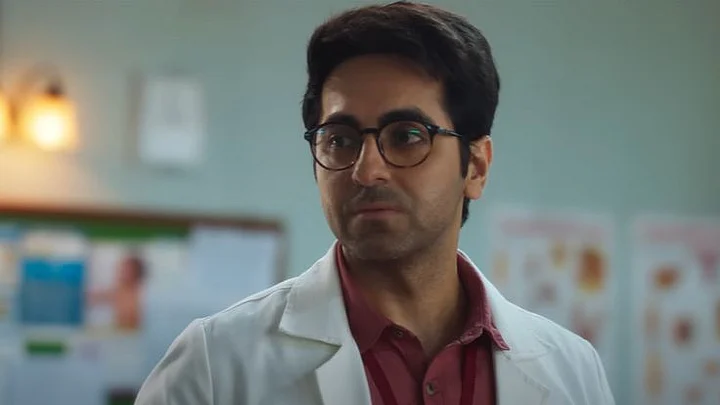Bollywood actor Ayushmann Khurana has been known for choosing themes that are unusual and interesting. From Vicky Donor to Shubh Mangal Saavdhan, it wouldn’t be wrong to say that some of these are courageous choices for a mainstream actor. As a gynaecologist, I felt Ayushmann’s Doctor G is yet another uncommon theme – something Bollywood would usually shy away from speaking about.
The film revolves around a young medical graduate Dr Uday played by Ayushmann who wishes to specialise in orthopaedics but fate secures him admission in gynaecology.
Directed by Anubhuti Kashyap, and set in Bhopal, Doctor G begins with a predicament - a male ‘supposedly’ in the realm of a ‘female profession’.
The movie starts by delving into the feelings of an aspiring medico about the specialty that he wants to pursue. After completing MBBS, the field of specialisation becomes a prime focus for most medical students. And so it is for Dr Uday, who is keen on a specialisation in orthopaedics but ends up as the only male student in the gynaecology batch.
Uday’s character transforms from someone with a narrow view of women’s health to a budding doctor who slowly becomes passionate about the specialty he is in. How does that happen? Thanks to all the strong female characters in the movie who change his perception.
Changing perceptions
In the early parts of the movie, Uday constantly justifies that women don’t want to take treatment from a male doctor. ‘Jo cheez mere paas hai hi nahi, uska ilaaj kaise karoon’ this dialogue portrays his rather conservative view of the profession, steeped in social conditioning. He uses this as a reason for not examining patients.
In reality, a doctor cannot really give this as a reason. The character of Uday is also steeped in stereotypes – he feels cricket is for men and badminton is for women. He defines societal roles in terms of gender and says it is challenging to move from these assumptions.
But as you watch the film, you begin to question this. Is it ignorance or a challenge for Uday? Enter Dr Nandini, portrayed by Shefali Shah – to give Uday a much needed schooling.
Shefali’s character is as central to the film as Ayushmann’s.
She encourages Uday to look past societal constraints and change his mindset. She says “Male female kya hota hai, doctor doctor hota hai”. This is actually what is true in the real world. Some of the best gynaecologists are male and patients don’t specifically seek out a female gynaec.
They just need a doctor who can understand them and treat them well. Gender is a social construct.
A doctor’s expertise and approach towards a patient is not defined by gender. The movie also brings about the interplay of the genders while touching upon the need to understand their emotional complexity.
For me, the highlight of the film is the whole bunch of female characters, from Rakul Preet, Sheeba Chadda to many others. Each of them is a strong character in their own right, and break down unnecessary and social constructs about masculinity and ambition. They end up dismantling his archaic ideas about what a man is supposed to do – sending a strong message not only to Ayushmann’s character but also to others watching.
Passion overtakes the ‘subject’/specialisation
Specialising in a certain department is the only thing on a medical graduate’s mind. But as they dive deeper into the subject, the speciality becomes irrelevant. They truly start caring about their patients and about the subject, irrespective of the specialisation. As a doctor evolves, their commitment to the patient becomes the most important rather than the choice of the speciality. This has been brought out wonderfully in the movie through the change in Uday’s character.
Though there are a few medical inaccuracies in the movie, the movie overall effectively tackles issues of gender stereotypes in the medical profession. It’s also nice to see that words like ‘vagina’ are used openly in the movie without masking it. Don’t judge the movie based on its medical accuracy, but rather appreciate the emotional intricacies it brings out. As a gynaecologist, I found the film humorous and sensitive.
So did it succeed in making men play badminton? Watch it to find out.
(Dr Smitha is a gynaecologist with sub specialization in maternofetal medicine and over 10 years experience. She has acquired an MBA from BITS Pilani, and is also an entrepreneur. At present, she is an empathetic doctor taking part in changing women's healthcare through Proactive For Her. She is currently pursuing a Global healthcare leadership program from Harvard University as well.)
